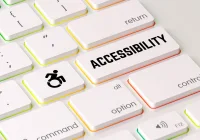As the healthcare landscape evolves through technological advancement, hospitals face the dual challenge of embracing digital innovation while ensuring clinical efficacy and staff engagement. Despite the availability of policy tools that support procurement decisions, there is a gap in structured, user-centred approaches that capture real-world experiences at early stages of adoption. To address this, a conceptual framework known as ARC—comprising four sequential phases: imagine, educate, validate and score—was developed and validated through a Delphi study with healthcare technology experts. This framework aims to equip institutions with practical tools to foster trust, improve integration and facilitate iterative learning during the adoption of emerging technologies.
Early Exploration through the ‘Imagine’ Phase
The first phase of the ARC framework focuses on creating a safe and inclusive space for experimentation, away from patient areas. It encourages clinicians, patients, technologists and entrepreneurs to interact with prototypes through hands-on demonstrations and practical design scenarios. The aim is to demystify new technologies, map user journeys and highlight tangible benefits. Introducing clinical champions to promote the technology, visualising effects on workflows and fostering transparent communication about benefits and governance were among the key enablers agreed by experts.
However, the level of stakeholder involvement in this early phase sparked debate. While some experts advocated for wide inclusion to build comprehensive insights, others warned that extensive stakeholder engagement could slow down the process and dilute focus. Recommendations included involving targeted users to map out the practical implications of the technology before broader dissemination and initiating light pilot deployments to gauge feasibility. The framework also emphasised the importance of governance without overcomplication, striking a balance between reassurance and agility.
Embedding Education and Tailored Learning Strategies
The second phase, ‘educate,’ recognises that technology adoption requires not only awareness but also comprehensive training aligned with diverse user needs. The framework supports a progressive learning model, integrating bite-sized online modules, workshops for complex technologies and on-the-go education embedded within clinical workflows. Importantly, training is envisioned as a continuous and context-sensitive process, with digital champions providing real-time support.
Must Read: A Framework for Responsible AI in Healthcare
Participants in the Delphi panel highlighted that the healthcare workforce is heterogeneous in digital proficiency, learning styles and roles. As such, equitable access to educational resources, the creation of digital competency pathways and capturing first impressions through structured feedback are vital. Innovative approaches, such as low-dose high-frequency training and embedding digital education into daily routines, were proposed to maintain momentum. The panel also stressed the need for contextual clarity around the use cases of each new technology and the importance of involving both local and national digital education networks.
Real-World Validation and Scoring of Technologies
The ‘validate’ and ‘score’ phases of the framework provide structured mechanisms for evaluating technologies in live or simulated clinical settings. The validation process involves integrating new solutions within user environments, analysing functionality, anticipating failure contingencies and ensuring data-driven benefits. Clinical simulation was discussed as a complementary tool for training, although some experts questioned its value for initial validation compared to real-world environments.
Debriefing methods adapted from After-Action Review techniques are employed to capture the early impressions and concerns of staff, fostering psychological safety and iterative learning. The score phase formalises evaluation through a checklist addressing intended use, user environment, ease of use, patient safety, staff receptivity and measurable value. The framework emphasises proportionality in data collection, feedback loops and cost-utility analysis as essential components for long-term adoption.
Experts also highlighted the importance of understanding the broader organisational and infrastructure requirements, including access, integration and support mechanisms. Mapping these elements helps decision-makers prioritise technologies that align with strategic goals and clinical needs, particularly at the early Technology Readiness Levels where evidence is still emerging.
The ARC framework, developed and refined through expert consensus, offers a pragmatic and human-centred approach to guide the early adoption of healthcare technologies. By integrating stakeholder perspectives, structured education and real-world validation, the framework addresses critical barriers to adoption while reinforcing confidence among staff and patients. Its phased methodology allows for flexibility, reflection and refinement, ultimately enhancing the ability of healthcare systems to evaluate and embrace innovation. Future applications across various contexts and technologies will further contribute to its evolution, supporting the transformation towards a digitally enabled and inclusive healthcare ecosystem.
Source: BMJ Health & Care Informatics
Image Credit: iStock










